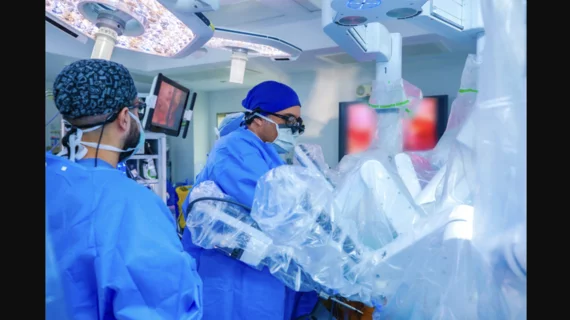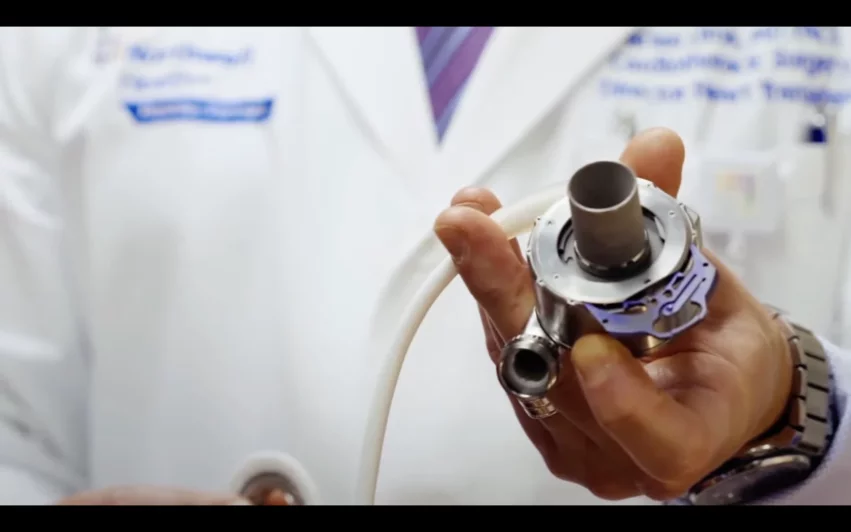Surgeons make history again with world’s first robotic implant of Abbott heart device
Surgeons with King Faisal Specialist Hospital and Research Center (KFSHRC) in Riyadh, Saudi Arabia, have performed the first robotic-assisted implant of Abbott’s HeartMate 3 left ventricular assist device (LVAD).
The procedure was performed on a 35-year-old patient who had been hospitalized for 120 days for advanced heart failure. His symptoms included kidney and lung deterioration. Cardiac surgeon Feras Khaliel, MD, PhD, led the transplant.
The patient’s recovery time is expected to be much shorter than typical LVAD implants in patients with advanced heart failure; KFSHRC estimates that hospital discharge will be within 10 days as opposed to the multiple weeks often required for traditional LVAD implants.
“This milestone demonstrates our ability to balance bold innovation with strict safety measures, delivering cutting-edge medical solutions that redefine the possibilities in healthcare,” Björn Zoëga, MD, PhD, deputy CEO of KFSHRC said in a statement.
“The patient was amazed at the minimal scarring, reflecting the advanced capabilities of robotic technology,” added Khaliel.
Abbott’s HeartMate 3 LVAD is approved by the U.S. Food and Drug Administration (FDA) to treat advanced heart failure in patients awaiting a heart transplant as well as those who are ineligible for a transplant and may require the device for the rest of their lives. In August 2024, the FDA approved new labeling for the device that said aspirin was no longer recommended to help patients avoid post-implant blood clots.
“This achievement aligns with Abbott’s commitment to empowering people to live healthier, fuller lives,” Keith Boettiger, vice president of Abbott’s heart failure business, said in the same statement.
Heart team back in the news with another historic implant
KFSHRC made headlines in 2024 when its surgeons completed the world’s first fully robotic heart transplant. The transplant, which lasted roughly two and half hours, was performed on a 16-year-old patient with end-stage heart failure. Khaliel led that procedure as well.
When Newsweek published its 2024 World’s Best Hospitals rankings, KFSHRC came in at No. 1 for all of Saudi Arabia. The same was also true in the publication’s 2023 rankings.


